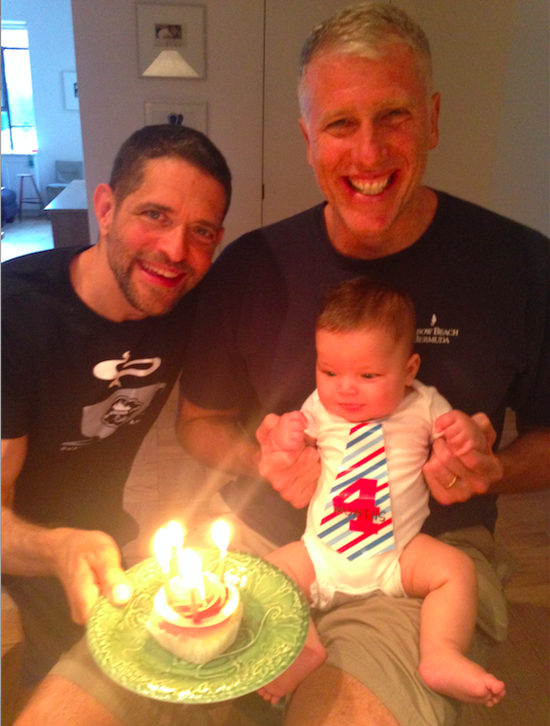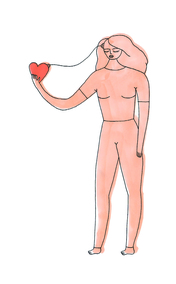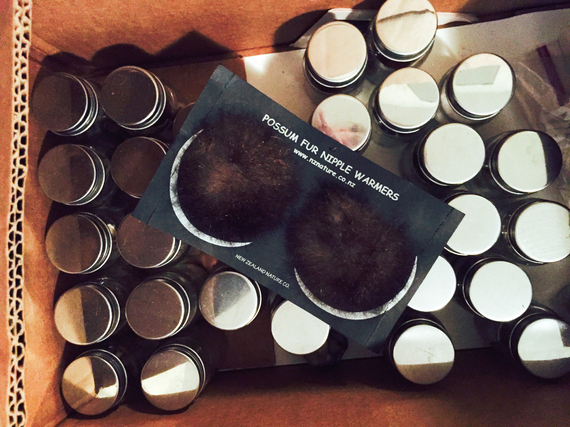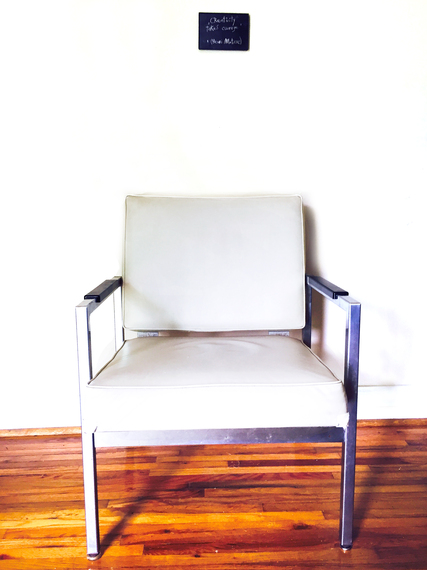Making Therapy Work for You: Have Your Feelings Without Your Feelings Having You
I've noticed that most people come in to therapy with some preconception about what to do with their feelings in session: Some believe that venting will help them to heal, others feel that it will be most helpful to remain distanced from their feelings so that they can analyze them. They're both right. And they're both wrong. It's the use of both of these modes in alternation that's most helpful -- though I think that there are better ways to describe them than "venting" and "analyzing."
We need to value our feelings and use them rather than trying to get rid of them through either venting or analyzing. I've found that the best way to do this is to let feelings rise into consciousness, fully experience them, contain them and learn from them, and then decide what to do about them. This means expressing feelings without reacting to them impulsively, and then making conscious decisions about how to live based on what we learn from them.
This whole process could take minutes or years. Some feelings take a long time to fully rise into conscious, and to be fully experienced and fully understood. Others emerge quickly.
This brings up a common misconception about the best way to handle feelings. Many people confuse repression with suppression: Repression is an unconscious way of avoiding disturbing feelings. Suppression, on the other hand, is a healthier tactic in which we make a conscious decision not to focus on something that we already understand. Once you have some sense of why you worry needlessly about something, for instance, it makes perfect sense to delay worrying about that issue, quarantining it until Saturday morning from 10:15 until 10:40 if you need to. It's not necessarily bad to put a feeling aside if you already understand what you have to learn from it.
One reason that it's important to carefully explore feelings as they occur in the session is that we often have layers of feeling, and the obvious layer may not be the most significant one: anxiety may sit on top of anger or sadness, and anger may easily cover fear.
Anne, for instance, was furious that her cousin Sandra cancelled her trip to visit her. She knew that Sandra had some serious problems that made it almost impossible to visit, so she could try to be reasonable about it and avoid the feeling rather than lambasting someone who really didn't deserve it. But she also knew that she tended to become resentful or explode later when she did that. Instead she decided to sit with the feeling, describe it, hold it, see how it felt in her body, and notice the feelings of sadness and fear underneath. She eventually realized that she was very afraid of being alone and forgotten, an old feeling that had little to do with her cousin, and much to do with her past and the way she treated herself. She decided that she needed to make an effort to nurture her relationships with people who had made themselves available, but with whom she hadn't followed through. And that she needed to thoughtfully and more regularly "visit" her own feelings rather than ignoring them or reacting to them impulsively. This was just one in a series of episodes in which she learned to regulate her affect, to have her feelings without her feelings having her.
Some people have difficulty accessing feeling at all. If this is the case for you, you'll need to slow down and focus. Focus on the body to see what you can learn from it. Focus on any seemingly insignificant reactions you have toward your therapist. Focus on the incidents during your week in which you felt the greatest degree of happiness or sadness. It's like slowing down a video to watch the details in slow motion. Or to use an auditory metaphor instead, it's like a radio signal that's very faint. You'll need clear everything else away and listen carefully at first. As you come to identify and recognize the signals, they'll eventually be easier to hear.
One sure way to sabotage the effectiveness of your therapy is to engage in avoidant and addictive behavior -- behavior that allows you to temporarily evade disturbing feelings. If you start to feel something in your session, but then drown it in a binge of drinking, eating or shopping, you won't get as much from the process. This is not to say that you have to wait to get over your addiction before you begin therapy, but that you may need to focus on the addiction in the early part of your process.
Emotions have a communicative aspect to them -- they want something to be witnessed. I'm stressing your response to your own emotions here, but I also want to be clear that there is no substitute for having your emotions seen and empathically received by someone else -- in this case your therapist. But they can't do that if you don't let them see what you're going through.
Finally, as we improve our relationship with our difficult feelings, we also find that we can savor the pleasurable ones more easily. And that makes the process of psychotherapy even more worthwhile.
This is the third post in a series about how clients can most effectively use their time in psychotherapy. For an introduction see my post 10 Tips to Make Therapy Work for You, and for a complete description of 10 these tools see my book: I'm Working On It In Therapy.
I'll be posting next week about how to use the therapeutic relationship. Click "Become a Fan" at the top of this post if you want to make sure you don't miss it.
-- This feed and its contents are the property of The Huffington Post, and use is subject to our terms. It may be used for personal consumption, but may not be distributed on a website.





















